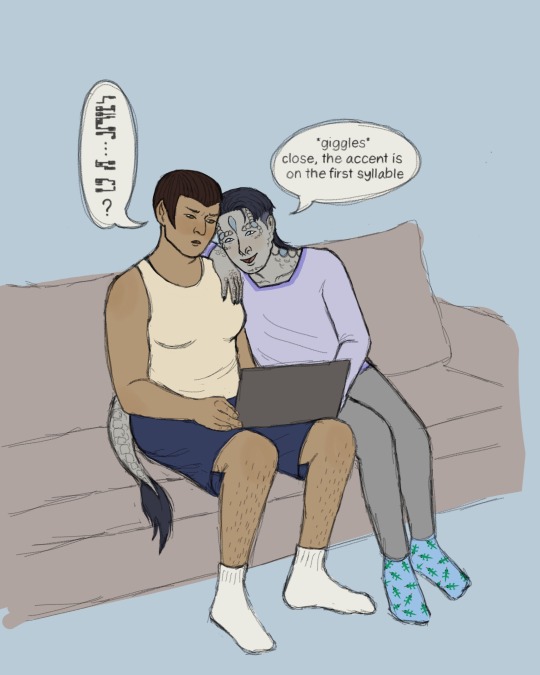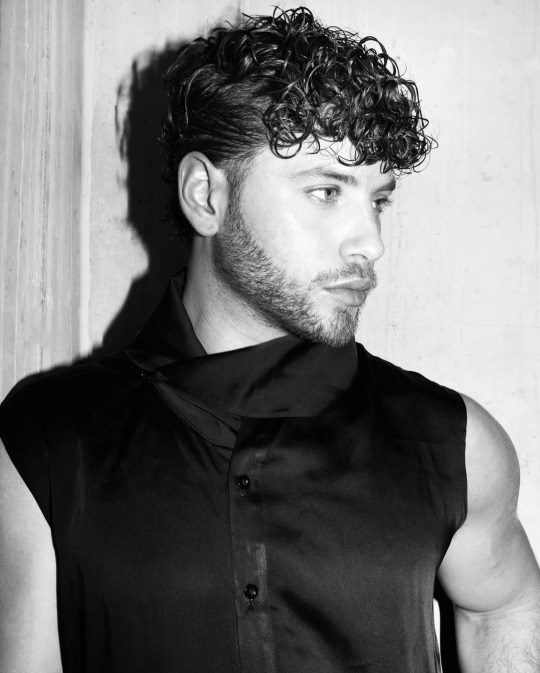#eyales
Photo

Eyal Booker
5K notes
·
View notes
Text
I don’t feel like I have anything to say to Zionists anymore except “this is what it sounds like to defend genocide.”
I just - can you hear yourself? I know many of you have studied fascism and the rise of genocidal attitudes. Do you think you’re immune? Do you think being Jewish, or educated, or the descendant of genocide survivors makes you immune? You know better.
My god, if the 20th century can teach us one thing, let it be that humans are great at justifying genocide to themselves and each other when motivated to. No education can inoculate against it. Every excuse had been used before. Every feeling of righteous justification for slaughter has already been invoked.
It is undeniable that there are tens of thousands of dead. So many thousands upon tens upon hundreds of thousands of children dead maimed orphaned traumatized by bombs that Israel dropped, shells that Israel fired, targets chosen by software Israel made.
This is undeniable; I can see it with my own eyes. You can say, this is the reality of war, and I will say: this is the reality of your choices. How Israel wages “war” is a choice. How they go about statecraft is a choice. We cannot and should never accept their justifications that some action of the enemy necessitated this response; they still chose the response.
There was a euphemism in some death camps in Poland: “dirty work”. It was often literally true - there’s horrific stories about the smell and texture of industrial amounts of human ash - but also figuratively; the work of mass executions is more often seen as a necessary evil for the accomplishment of a greater good. It’s rarely celebrated or acknowledged openly for what it is at the time. All of this is very normal in genocide.
I look at my timeline in the past months, at the choices Israel has made for its “greater good”, I have listened to the justifications. What I see is Israelis making the same old tired weak excuses for their own dirty work.
And all I have to say anymore is: this is what it sounds like when you defend genocide. You have not invented a new thought in all of it. “They’re not a real group, they’re monsters, we don’t want to kill them but we have to, we just want them to leave before they kill us all and they’ll try to exterminate us the second we stop killing them” - save it.
Do some fucking reading on other genocides - the Armenian one is particularly relevant - and read arguments from genocide deniers and you will quickly see it is all the same shit. Check out Facebook posts from Myanmar during the genocide and it’s basically indistinguishable from tweets from Zionists today. It’s the same shit, over and over and over again.
Literally billions of people with eyes can see what Israel is doing and call it what it is, because it’s been done before, and all the defensive answers and excuses have been done before too.
This is what it looks like when people defend genocide. Always just like this.
#gaza genocide#anti zionisim#genocide denial#read dirty work by eyal press#it is not about this conflict but it’s a great on state sponsored violence
80 notes
·
View notes
Text

Eyal Booker
109 notes
·
View notes
Text

Eyal Booker
818 notes
·
View notes
Text
Eyal Booker 🔥💖

EYAL BOOKER 🔥💝
#eyal booker#body perfect#sexy#masculinity#homoerotic#male bulge#hot male#male model#male beauty#beautiful model#handsome model#hot#sexy male#beautiful body#lindo#masculine#so hot 🔥🔥🔥#homoerotism#hombre bello y sexy#handsome man#beautiful men#hombres#beleza#beautiful smile#cute guy#handsome guy
56 notes
·
View notes
Text
[“One author of the Clinical Psychology Review article was Shira Maguen, a researcher who began to think about the moral burdens of warfare while counseling veterans at a PTSD clinic in Boston.
Like most Veterans Affairs psychologists, Maguen had been trained to focus on the aftershocks of fear-based trauma—IED blasts that ripped through soldiers’ Humvees, skirmishes that killed members of their unit. The link between PTSD and such “life-threat” events was firmly established. Yet in many of the cases she observed, the source of distress seemed to lie elsewhere: not in attacks by the enemy that veterans had survived, but in acts they had observed or carried out that crossed their own ethical lines.
Soldiers were not, of course, the only people who risked committing such transgressions. All of the counselors I interviewed at the Dade Correctional Institution struggled with inner conflicts related to horrifying things they’d witnessed but failed to prevent. What kind of person was she? Lovita Richardson wondered after seeing a prisoner bound to a chair get bludgeoned and not intervening to help him. “Why didn’t I do more?” Harriet Krzykowski asked herself after learning about the “shower treatment.” Many of the prison guards I’d interviewed had alluded to incidents where they’d done things they knew they shouldn’t, as when Bill Curtis slammed a man to the ground, nearly fracturing his skull. Moral injuries were an occupational hazard for anyone whose job involved “perpetrating, failing to prevent, or bearing witness to acts that transgress deeply held moral beliefs.” For most dirty workers, that is.
Among the veterans she counseled, Maguen grew particularly interested in the emotional toll of killing, which was sanctioned in the military but not when defenseless civilians were involved. “I was hearing about experiences where people killed and they thought they were making the right decision,” she told me, “and then they found out there was a family in the car.” To find out how heavy the burden of killing was, Maguen began combing through the databases in which veterans of conflicts dating back to the Vietnam War were asked if they had killed someone while in uniform. In some cases, veterans were also asked whom they killed—combatants, prisoners of war, civilians. Maguen wanted to see if there might be a relationship between taking another life and debilitating consequences like alcohol abuse, relationship problems, outbursts of violence, PTSD. The results were striking: even when controlling for different experiences in combat, she found, killing was a “significant, independent predictor of multiple mental health symptoms” and of social dysfunction.
Later, when she started directing a mental health clinic at a VA hospital in San Francisco, Maguen convened groups where veterans came together and talked about the killing they had done. In the VA no less than in the military, this was a taboo subject, so much so that clinicians often referred to it euphemistically, if at all. To ease the tension, a scene from a documentary was shown at the beginning of each session in which a veteran said, “Out there, it’s either kill or be killed. Nothing can really prepare you for war.” Afterward, Maguen would ask the veterans in the room a series of questions about how killing had impacted their lives. Some reacted angrily. Others fell silent. But many seized the opportunity to talk about experiences they later told Maguen they had never spoken about with anyone, not even their spouses and family members, for fear of being judged.
The veterans in Maguen’s groups didn’t talk a lot about fear and hyperarousal, emotions linked to PTSD. Mostly, they expressed self-condemnation and guilt. “You feel ashamed of what you did,” one said. Others described feeling unworthy of forgiveness and love. The passage of time did little to diminish the depth of these feelings, Maguen found. Geographic distance didn’t lessen them much either. Maguen recounted the story of a pilot who was haunted by the bombs he had dropped on victims far below. What troubled him was, in fact, precisely his distance from them—that instead of squaring off against the enemy in a fair fight, he had killed in a way that lacked valor. Obviously not all pilots felt this way. But the story underscored the significance of something Maguen had come to regard as more important than proximity or distance in shaping moral injury—namely, how veterans made sense of what they had done. “How you conceptualize what you did and what happened makes such a big difference,” she said. “It makes all the difference.”
Unlike PTSD, moral injury was not a medical diagnosis. It was an attempt to capture what could happen to a person’s identity and soul in the crucible of war, which is why it struck a chord among veterans who did not feel their wounds could be reduced to a medical disorder. “PTSD as a diagnosis has a tendency to depoliticize a veteran’s disquietude and turn it into a mental disorder,” observed Tyler Boudreau, a marine officer who served in Iraq and came back haunted by doubts about the war’s morality. “What’s most useful about the term ‘moral injury’ is that it takes the problem out of the hands of the mental health profession and the military and attempts to place it where it belongs—in society, in the community, and in the family—precisely where moral questions should be posed and wrangled with. It transforms ‘patients’ back into citizens and ‘diagnoses’ into dialogue.”]
eyal press, from dirty work: essential labor and the hidden toll of inequality in america, 2021
191 notes
·
View notes
Note
That all those big…strong…beefy ghouls love filling mountain’s pussy
Mmmmmm consider omega getting mountain under him
Don’t think mountain gets treated like he’s small a lot, usually expected to take charge because he’s the size of a fucking tree. But omega? Oh no … couldn’t ever make that sweet ghoul have to top.
Just wants to worship his pretty cunt like he deserves!!! Take his time to stretch him out on his thick fingers before manhandling him in half so he can really fill mountain like he deserves!!!!
29 notes
·
View notes
Text

domestic butch4butch aliens for day 5 of @startrekfemslashweek with the prompt "learning your language"
these r my ocs Cressida and Eyal :)) Eyal is Nal's little sister! read abt her family here and her mommy issues here
#no idea what the cardassian text says btw. copied it off the first image I found on google#I admit they r not vry fleshed out in my mind. I only know that they have an enemies to lovers arc lol#I think maybe eyal stows away on a romulan cargo ship to get off of cardassia prime. and cressida works on said cargo ship.#someone else needs to write their cool space adventures with a side of slow burn romance and learning to see past their prejudices#narcissus's echoes#pythasposting#(barely pythasposting at this point. eyal is uhhhh pythas's sister-in-law??)#narcissus draws#startrekfemslashweek2023#ds9#cardassians#star trek#star trek fanart#star trek oc#romulans#star trek art
84 notes
·
View notes
Text

Eyal Booker
38 notes
·
View notes
Text

Eyal Booker
216 notes
·
View notes






